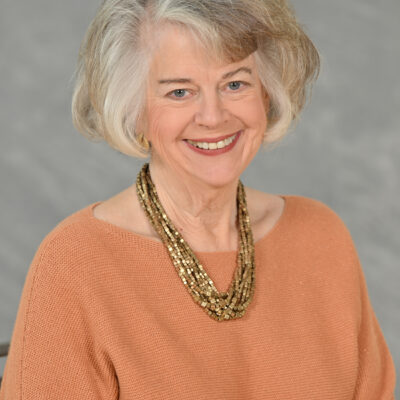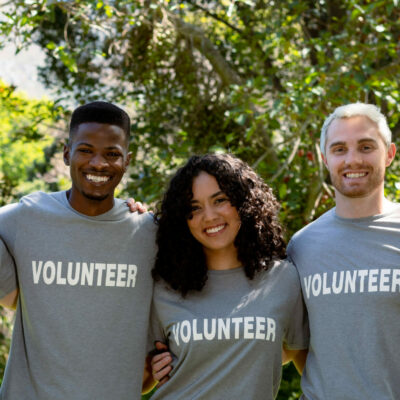DEIA Specialist Ernie Cathcart Retires
“More community connections around this work is going to be really important. Which allies can we work with moving forward for DEIA?”
If you ask Wellspring’s Chief Program Officer, Bevette Irvis, about the days before Ernie Cathcart, she can tell you some stories. And some concerns. And some hopes and dreams. A Cultural Competency Council worked hard to promote understanding and reduce stereotypes and microaggressions, back in the day. But they knew they needed more than a volunteer force and would do best to create a full-time staff position for what we now call Diversity, Equity, Inclusion and Access. In 2015, Wellspring hired Ernie Cathcart in the role of Cultural Competency Specialist. And over the past six years, Ernie has fashioned and led Wellspring’s Diversity, Equity, Inclusion, and Accessibility (DEIA) program.
Ernie has been a champion for staff and clients, alike.
While guiding Wellspring employees through countless hours of DEIA trainings, he reminds us about the power and influence we have to make this world more inclusive, even in difficult times. He helps us both laugh at ourselves—and take ourselves more seriously—on “the journey” that he frequently invokes. He challenges employees to identify hidden, or implicit, bias. And he empowers employees to feel comfortable in coming to work and showing their true, authentic selves.
Ernie was instrumental in expanding Wellspring’s DEIA employee resource groups (ERGs). Staff are encouraged to join one or more of these groups: BIPOC (Black, Indigenous and People of Color), Queerspring (LGBTQ+), and WAIR (Whites Against Institutional Racism). These ERGs serve as safe places for peers to share, support, challenge, and learn relative to difference, power, privilege, diversity, and inclusion.
Sitting down with Ernie for one last heart-to-heart, we asked him the following questions:
WFS: What changes have you experienced at Wellspring over the last six years that give you hope for the future?
Ernie: As an organization, Wellspring has taken ownership of DEIA programs and training. Executive leadership and HR are now being proactive and will bring up issues when talking about strategy, community relations, and staff development. These departments now look at how to weave our DEIA work into our policies and recruitment. DEIA is integral to the work we do.
WFS: Who inspired you to pursue the career you have today?
Ernie: There were quite a few along the way including various African American professors and lecturers I met while getting a master’s degree in social work. While working at Casey Family Programs in 1983, I met Linda Wilson. I was hired as the cultural diversity coordinator, and Linda was my supervisor. Her leadership is what inspired my desire to share DEIA with the community.
One of the most valuable pieces of advice she gave me is to never take the work on by yourself. Ensure that I have some allies. My job is to coach, to walk with, and be there, but leadership should pick the work up and run with it. She really inspired me to do the work I’m doing.
WFS: If given the chance, what would you tell yourself at age 13?
Ernie: Wow, that’s a great question. I would have told myself that spiritually, be faithful. When going through situations, they do get better. Also, realize that everybody is going through something. Never assume by appearance that someone isn’t going through their own hurts and pains. To see people for who they really are.
WFS: What advice would you give to organizations looking to implement their own DEIA program?
Ernie: Ensure that you can get leadership support around DEIA initiatives and the programming that you want to do. Understand and know that you won’t satisfy everyone. Also, understand that this is a journey. You will hit snafus, but don’t take them personally. Celebrate the small wins, these are good signs.
WFS: What changes do you believe could benefit our DEIA efforts at Wellspring?
Ernie: More community connections around this work is going to be really important. Which allies can we work with moving forward for DEIA? How do we partner with various community organizations and how do those organizations see us? How do we bring supervisors on board? They are the first line. The organization needs to support and equip our supervisors in their role regarding their DEIA work.
WFS: Any advice for your successor?
Ernie: Ensure that whatever work must be done, you’re not the one to be the center. You’re the catalyst, coach, mentor, leader—but the work needs to be done by staff. That is key for this position. Build relationships with managers in a way where they trust you. Give examples to them as a type of support, what does that conversation look like? It is also important to be present and bring issues to the table.
WFS: Any exciting plans for your retirement?
Ernie: Read and get into issues that I didn’t have time to get into while working. Do some fun stuff—like take a train trip with my wife across the country, visit relatives, and travel to a few spots along the East Coast.
WFS: Is there anything else you’d like to add? Any parting words to share?
Ernie: Keep at the work, don’t stop—stay with it. When people are doing work like this, they expect immediate results, but the work you do may show results in a year or two down the road. Not giving up is important.
As Ernie often notes, he is a facilitator of change. And yet, he has also been a leader, encouraging us to constantly build a more diverse, equitable, inclusive and accessible service environment. While Ernie is retiring, his work will live on in the lasting changes he has facilitated at Wellspring and through our deep commitment to DEIA for all clients and staff. Ernie, we will remember you with warm thoughts and memories.



